In addition to Weibo, there is also WeChat
Please pay attention

WeChat public account
AutoBeta


2024-11-21 Update From: AutoBeta autobeta NAV: AutoBeta > News >
Share
AutoBeta(AutoBeta.net)05/26 Report--
Today, a person close to Hyundai in Beijing said: "at the official level, it is true that there is only a shutdown, and we have not received a notice to close the factory in Chongqing, but the shutdown is not a long-term solution," according to China Business and Economics. " Hyundai officials in Beijing have yet to respond to the news.
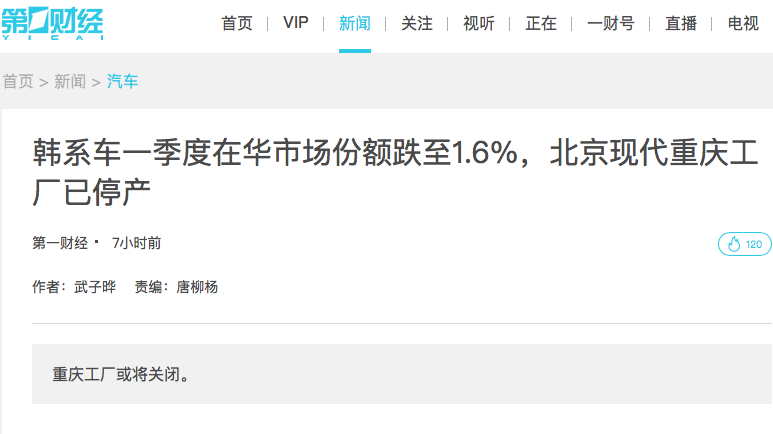
In fact, as early as February 21 this year, there was news that the Beijing Hyundai Chongqing plant may have stopped production. A person familiar with the matter said at the time: "the Beijing Hyundai Chongqing factory now has no production, most of the workers are on holiday and have stopped production since December last year." However, people familiar with the matter pointed out, "part of the production line of the Chongqing factory has been shut down, and the workers are on vacation, but the engine factory and the production line of imported models are still in operation, so the statement of factory shutdown is not accurate." Beijing Hyundai responded that it had not received any internal documents about the suspension of production. During this period, people familiar with the matter also revealed that the Beijing Hyundai Chongqing factory does have plans to gradually stop producing small cars and turn to producing more efficient large cars. On April 27, against the background of hot sales of new energy vehicles, Beijing Hyundai was exposed that there were no cars in its stores and that many of its new energy models were on the verge of stopping production. Beijing Hyundai confirmed that at present, the official website still shows that the Festa pure electric car on sale has stopped production, and the hybrid models of Leader and Sonata plug in cannot be ordered. Only one of the three configurations of Mingtu pure electric vehicles is on sale. The other two models are also in a non-booking state. After that, the official customer service of Hyundai in Beijing responded: "We have not received the news that the Festa pure electric model has been completely discontinued, and suggest going to the dealer store for consultation." In recent days, it has also been reported in the market that the Beijing Hyundai Chongqing factory is about to close, and the manufacturer has offered a layoff compensation plan for "Nissan 1x 8", in which "N" represents the number of years of work, "1" represents a monthly salary, and "8" is 8000 yuan in compensation. However, so far, there has been no official response to the news.
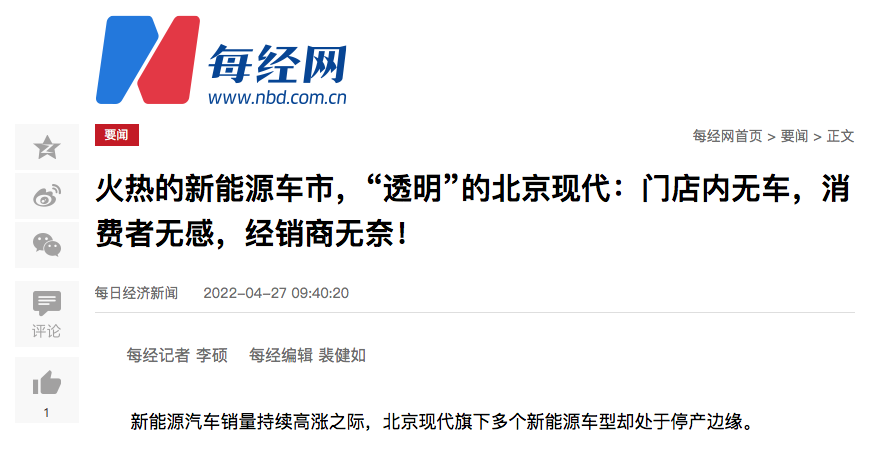
According to the information reviewed by the automotive industry, Beijing Hyundai has a total of five vehicle factories in Beijing, Hebei and Chongqing, which are Beijing Shunyi first, second and third factories, Hebei Cangzhou factory and Chongqing factory, with an annual production capacity of about 1.65 million vehicles. According to Beijing Hyundai's cumulative sales of 359851 vehicles in 2021, it means that Beijing Hyundai's capacity utilization rate is only 22%. In order to optimize production capacity, Beijing Hyundai sold the first factory in China, the first factory in Beijing, to ideal Automobile in 2021. At present, Beijing Hyundai has only four complete vehicle factories, with an annual output of about 1.35 million vehicles. The Chongqing factory, which was reported by the media to stop production, is the fifth plant built by Beijing Hyundai in China, which was completed in 2017, with a total investment of 8.39 billion yuan. It is also the latest of the five factories and the most advanced factory in Beijing Hyundai in China. The annual production capacity of the whole vehicle is 300000 vehicles, and the annual production capacity of engines is also 300000 vehicles. It mainly produces Festa, new Reno, Onchino and ix25 models.
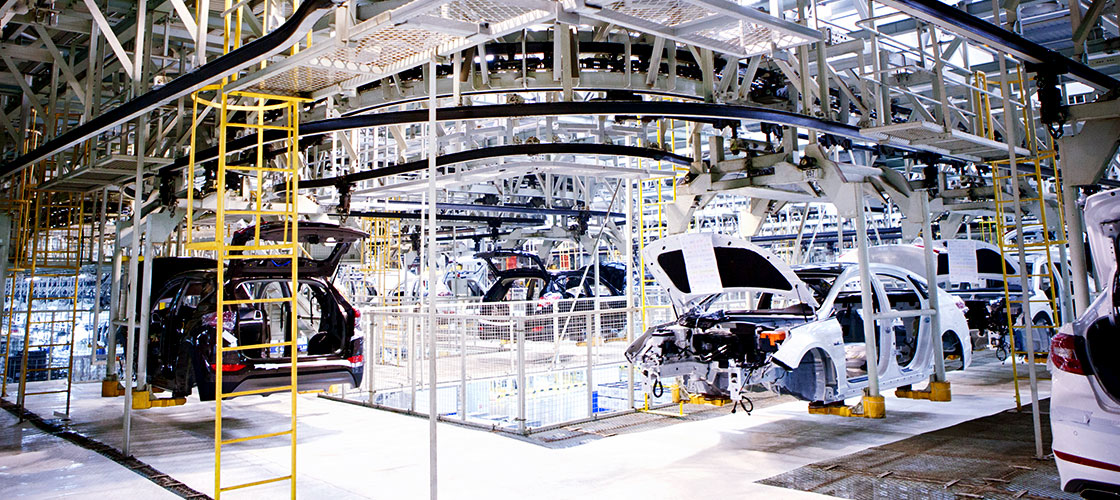
Beijing Hyundai was founded on October 18, 2002, jointly funded by Beijing Automobile Investment Co., Ltd. and Korea Hyundai Automotive Co., Ltd., 50% each of China and South Korea, and the duration of the joint venture is 30 years. On March 18 this year, Beijing Automobile issued an announcement on the Hong Kong Stock Exchange that subsidiary Beijing Automotive Investment Co., Ltd. and Hyundai Automotive Co., Ltd. entered into an amendment agreement, agreeing to increase the capital of Beijing Hyundai by 942 million US dollars (about 5.993 billion yuan) according to its proportion of the current registered capital of Beijing Hyundai, and the two sides will inject 471 million US dollars respectively. When the capital increase is completed, Beijing Hyundai's registered capital will increase to $2.978 billion, with both parties still accounting for 50 per cent of Beijing Hyundai's stake. Since its establishment in 2002, Beijing Hyundai has a history of 20 years, but its development process has not been smooth. Sales data show that between 2013 and 2016, Beijing Hyundai sold 1.03 million vehicles, 1.16 million vehicles, 1.06 million vehicles and 1.14 million vehicles respectively. 2016 was the best year for Beijing Hyundai in these four years, but after this record, sales in Beijing Hyundai began to decline and continued to decline for five consecutive years (2017-2021).
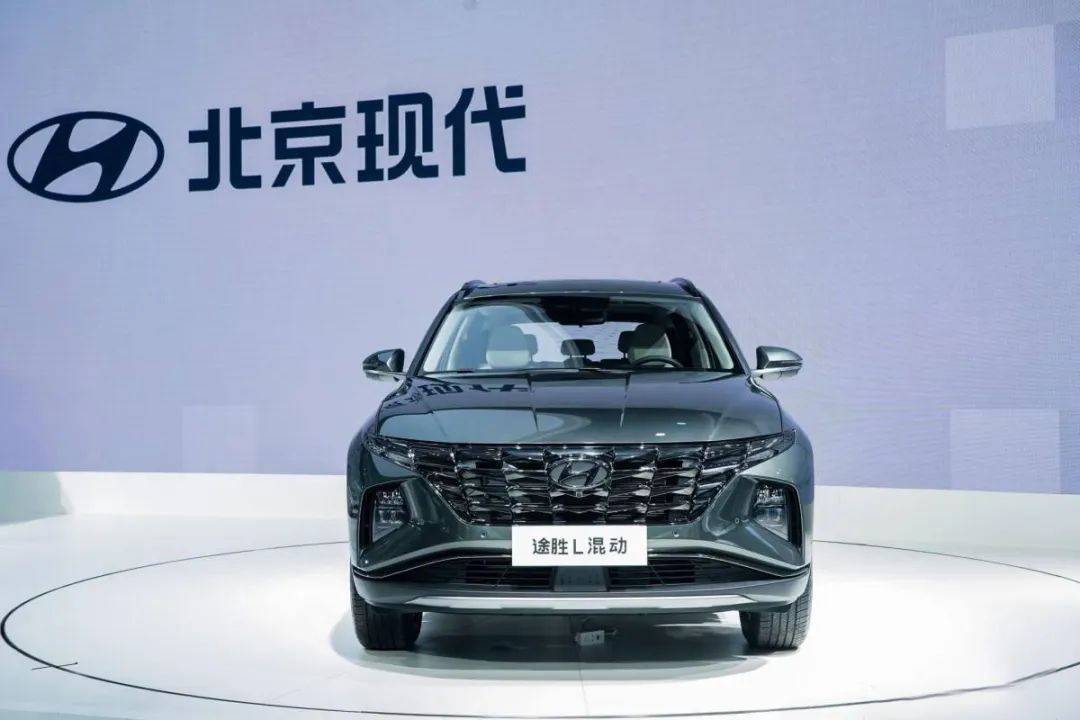
In terms of time and sales data, Beijing Hyundai sold more than 1 million vehicles for the first time since it was founded in 2002, peaked in 2016, and opened its fifth factory in Chongqing in 2017, a year when Beijing Hyundai's sales began to decline sharply. From 2017 to 2019, Beijing Hyundai sold 755659, 782163 and 685126 vehicles respectively. In 2020, in order to reverse the trend, Beijing Hyundai launched a number of new cars in the second half of that year, including the Elantra, the new Sonata and the Tusheng L, but the annual sales in 2020 were only 384782. Entering 2021, Beijing Hyundai continued to make changes and set annual sales of 560000 vehicles, launching six new cars in product layout and streamlining the number of dealers, with unsatisfactory results. The cumulative sales volume for the whole year of 2021 was 359851 vehicles, only 55.4 per cent of the annual sales target. Although Beijing Hyundai made product adjustments in 2020 and 2021, it failed to reverse the continuous decline in sales, with a net loss of 6.284 billion yuan in 2020, a net loss of 4.995 billion yuan after tax in 2021, and a current net asset of 37.965 billion yuan.
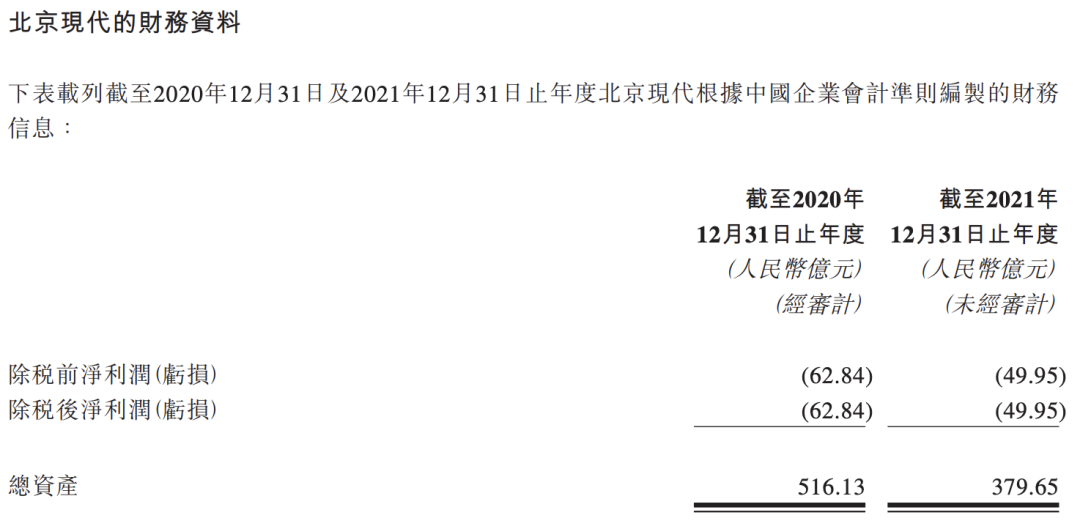
With regard to the continuous decline in the annual sales of Hyundai cars in Beijing, people in the industry believe that Beijing Hyundai has not innovated in strategy and models according to the changes in the market, and the process of localization is relatively slow, and it has introduced too many similar models at the same time. As a result, it is unable to respond to changes in the market quickly while the distribution of marketing resources is uneven. In addition, in terms of new energy models, At present, Beijing Hyundai's new energy models are basically "oil to electricity" products. According to Beijing Hyundai's plan, this year, Beijing Hyundai will improve the overall utilization of production capacity and increase the launch of new energy models by adjusting the product structure and planning to turn its factories in China into an export base. the first electric model based on pure electric platform will not be launched until 2023.
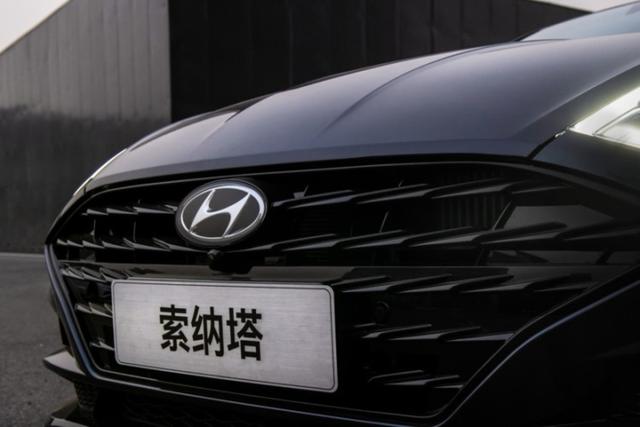
In terms of the current market performance of Korean car companies in China, Beijing Hyundai's dilemma is only a microcosm of the current development of Korean brands in China, with overall Korean car sales declining year after year since 2017, according to data released by the China Association of Automobile Manufacturers. According to the data, the market share of Korean cars in domestic passenger cars from 2016 to 2021 is 7.35%, 4.63%, 4.98%, 4.7%, 3.8% and 2.4%, respectively. Among them, Dongfeng Yueda Kia, one of the Korean car companies, has also been in decline since 2017. Data show that Dongfeng Yueda Kia's annual sales were 650000 in 2016, 360000 in 2017, 250000 in 2020, and plummeted to 160000 in 2021. In December last year, Dongfeng Motor, one of the Chinese partners, withdrew from Dongfeng Yueda Kia. In March this year, Dongfeng Yueda Kia Automobile Co., Ltd. officially changed its name to Kia Automobile Co., Ltd., the person in charge of Kia Automobile said: "the name of the company is not important, the key is the company strategy."
According to the latest figures, car sales in China were 6 million in the first quarter of this year, up 6.2 per cent from a year earlier. Among them, the sales of Korean cars were only 94000, down 39.3% from the same period last year, with a market share of only 1.56%. In addition, from January to April 2022, only 110000 Korean cars were sold in China, down 43.3 per cent from a year earlier, and market share has fallen to 1.8 per cent, according to the association. The suspension of production at the Hyundai Chongqing plant in Beijing means that the subsequent development may be more difficult for the development of Korean cars in China.
Welcome to subscribe to the WeChat public account "Automotive Industry Focus" to get the first-hand insider information on the automotive industry and talk about things in the automotive circle. Welcome to break the news! WeChat ID autoWechat
Views: 0
*The comments in the above article only represent the author's personal views and do not represent the views and positions of this website. If you have more insights, please feel free to contribute and share.





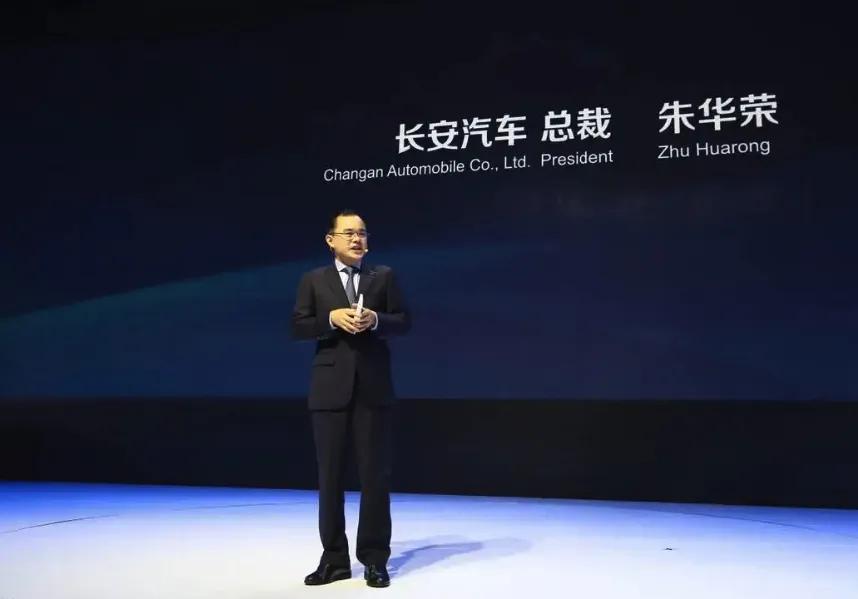
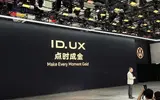
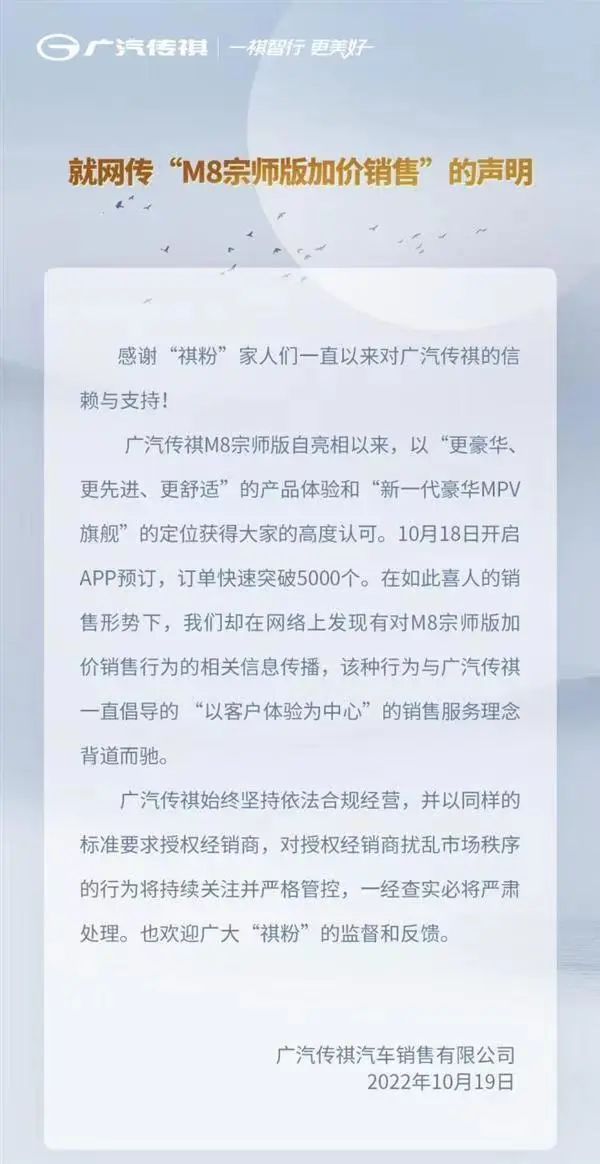

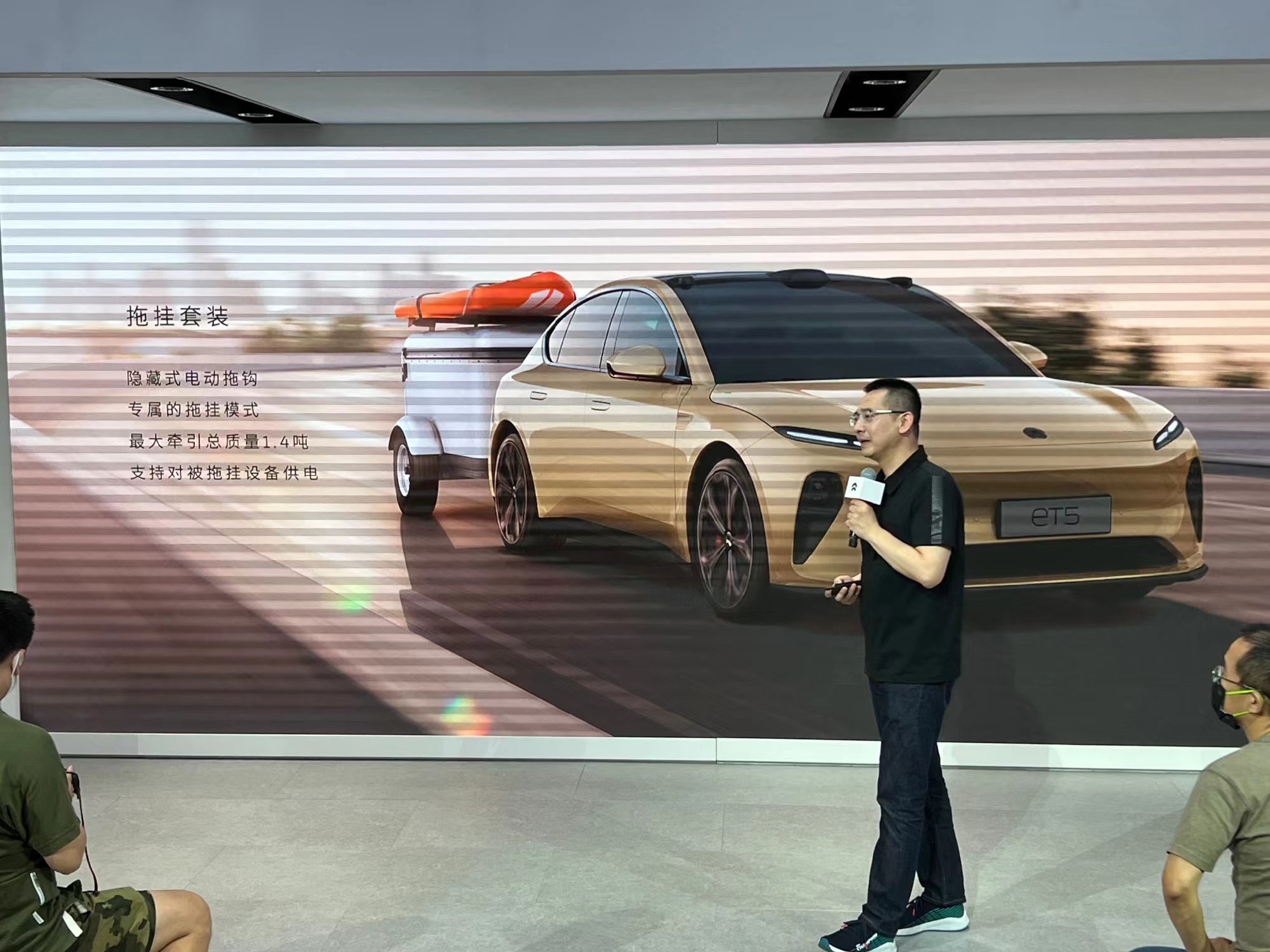

© 2024 AutoBeta.Net Tiger Media Company. All rights reserved.